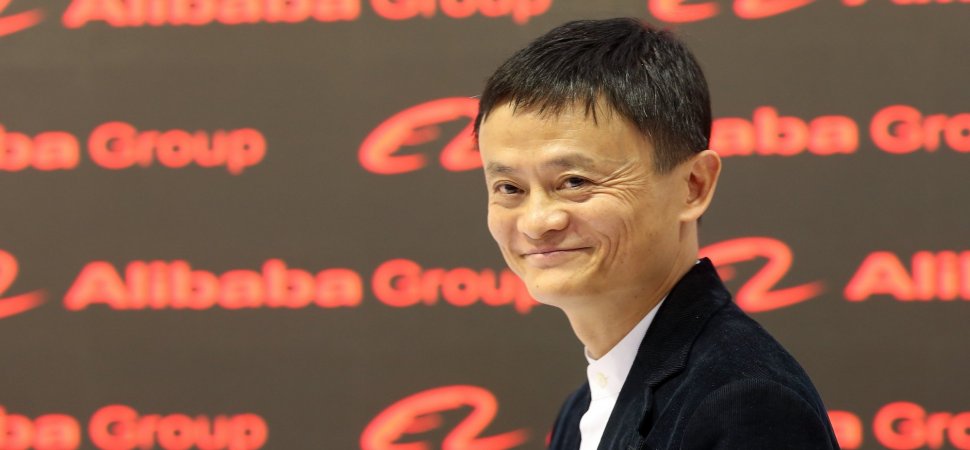
Without a doubt, Alibaba is an e-commerce giant. These statistics say it all:
- In 2014, it set a record as the company with the largest initial public offering (IPO) in history, taking home $25 billion from the New York stock exchange.
- 200 million people shop on Alibaba’s mobile sites daily.
- The organization sold $550 billion worth of products in the 2016 fiscal year.
- Alibaba announced annual revenues had gone up 56 percent to almost $23 billion in May.
- Its market capitalization as of October was $473 billion.
Behind this all is Ma Yun, the 53-year-old unassuming entrepreneur, better known as Jack Ma. He started the company with 17 others in his Hangzhou apartment, a city close to China’s east coast. His seed capital was $50,000. The year was 1999.
How has he been able to hold his own in the competitive e-commerce space? What lessons can we learn from him? Below are six lessons that can help any emerging entrepreneur:
1. Face threats bravely.
Ma believes an entrepreneur should face threats squarely and bravely.
In 2003, he launched Taobao, an eBay-like marketplace, to counter the power of EachNet, a consumer-to-consumer online platform, which had been established in China by eBay.
He just wanted to slow down the American company’s inroads into China. So while EachNet was charging a fee per transaction to bring buyers and sellers together, Taobao was absolutely free to use. While Taobao didn’t make money initially, it drew mass appearl and helped Ma face eBay’s threat.
The lesson? You may need to lose money, sometimes, in order to firmly establish your brand in the marketplace.
2. Prepare early for change.
If any kind of change is coming, Ma believes it pays to prepare early. That philosophy enabled Alibaba to fend off eBay’s strong competition in the early days.
“When we see something is coming, we have to prepare now,” Ma once said. “My belief is [that] you have to repair the roof while it is still [sunny].”
He’s already preparing for the change technologies such as artificial intelligence and machine learning are going to bring.
Even though the technologies are going to challenge a lot of job opportunities, Ma thinks they would improve lives.
To prepare for that inevitable change, Alibaba has announced a $15 billion investment in technological research and development over the next three years.
3. Make tough decisions when necessary.
Ma was forced to cut back on staff during the dotcom bust. It wasn’t an easy decision to make but he rose up to the challenge.
Even though it was painful and made him momentarily doubt the sustainability of his business, Ma heeded the tough call. Former Alibaba Vice President, Porter Erisman, recalled that this taught Ma the difference between being an English teacher and CEO.
“Being a CEO means making the tough decisions and sometimes cutting back in order to allow the company to survive,” Erisman said in an interview about Ma.
From my own experience as a startup founder and CEO, I can tell you that your ability to make tough decisions will single-handedly define your success as a leader.
4. Keep moving despite rejection.
Don’t allow rejection to cripple your dreams. Keep moving in spite of them.
Ma faced failure and rejection but he kept moving. Alibaba was rejected by about 30 venture capitalists before Softbank founder Masayoshi Son came to his rescue.
He says the string of rejections helped to build his courage as an entrepreneur. “As an entrepreneur, one of the qualities I have is that when I’m rejected by people, I get used to them,” Ma said in a CNBC interview.
Rejection isn’t always the easiest to deal with. However, there are countless stories, including my own, where entrepreneurs came out ahead through perseverance.
5. Apply yourself to relentless salesmanship.
No matter what type of startup you are, it takes relentless salesmanship to get your business off the ground.
Don’t underestimate the level of commitment this deserves. You just have got to be out there, convincing people to do business with you.
The former VP, Erisman, gave an insight into the kind of effort Ma invested into the Alibaba enterprise at the beginning. He said Ma would travel across China on road shows where 100 or 200 people would turn up to listen to him. In a kind of “mass movement,” Ma was going door-to-door to talk to business owners about why they needed to get online.
6. Engage the power of your personality.
Just like Steve Jobs (who pushed the Apple brand with his face), Ma relied on the power of his personality to convince people to invest.
While others gave detailed business plans, Erisman said Ma simply talked about his story and vision. This got him the $40 million-dollar investment offer from Softbank shortly after Alibaba was established.
By injecting your personality into your company, you’re able to humanize your brand into more than just an entity, which often leads to more opportunities.
